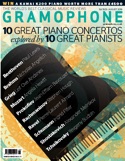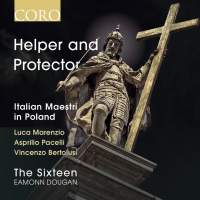Texte paru dans: / Appeared in: |
|
|
Outil de traduction (Très approximatif) |
|
|
Reviewer:
Alexandra Coghlan By the fourth volume of a series delving into the forgotten repertoire of 16th-century Poland, you might expect The Sixteen and associate conductor Eamonn Dougan to be scraping the bottom of the musical barrel. Instead, they’re just getting to the good stuff.
Anyone who has been following the series will recognise some names here. Asprilio Pacelli and Vincenzo Bertolusi – both Italian composers lured from Italy to work at the court of Poland’s Sigismund III in Kraków – return in a selection of motets, joined by fellow expat Luca Marenzio, whose Missa super Iniquos is the big draw here.
Until recently, this attractive Mass setting, with its two echoing choirs, existed only in part. The Kyrie and Gloria were known and recorded (most recently by Caritas and James Grossmith in 2000), while the rest of the work was lost. Now rediscovered, and edited by Barbara Przybyszewska-Jarmińska, the Mass is presented complete for the first time here. It is based on Marenzio’s own eight-part motet, which establishes the pattern of the two echoing, Italianate choirs that is mirrored (to varying degrees and with an impressive range of effects) through the various movements. The effect is coherent, sometimes to the point of anonymity, but the clarity of Dougan’s glossy choral textures allows the music’s rhythmic animation to penetrate, and pacing is carefully calibrated to balance moment-by-moment drama with a longer musical arc.
It’s a wise
choice also to frame the Credo with two Bertolusi motets (Sancta
Maria, succurre miseris and Peccantem me quotidie). Among the choppy
doublechoir dialogue of the Marenzio, Bertolusi’s unending polyphonic lines and
altogether darker, more chromatic palette are a welcome contrast, almost Lassus-like
in their intensity. Among the lighter Pacelli motets, the standout is Media
nocte, with the textural light and shade of verse sections beautifully
shaped by single voices. |
|
|
Consultez d'autres mois / Browse other months
|
|
|
|
|
|
Cliquez l'un ou l'autre
bouton pour découvrir bien d'autres critiques de CD |
|




